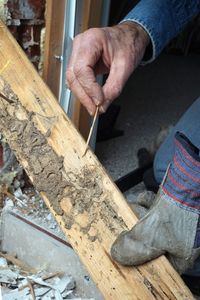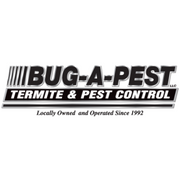
Termites are insects that evolved from cockroaches centuries ago. They may look like ants, but they are still more genetically similar to their pestilent ancestors. They do share one particular commonality with ants, however: There are more than 2,000 species of termites in the world, and each year they cause more than $5 billion in damage. Understanding these pests will help you identify and address an infestation before it becomes severe.
A Guide to Termite Behavior
1. They Don’t Just Eat Wood
Termites will eat plant roots, paper, cardboard etc. One of the best ways to practice proper pest control is to make sure your house is always free from wood to ground contact.
2. They Grow Wings
 If termites want to move far away and start a colony on the other side of your house, they can grow temporary wings. Normal termites shed the wings once the colony is settled, but new kings and queens, as well as reproductive termites, can fly.
If termites want to move far away and start a colony on the other side of your house, they can grow temporary wings. Normal termites shed the wings once the colony is settled, but new kings and queens, as well as reproductive termites, can fly.
3. They Never Sleep
Termites work 24 hours a day, every single day, and they can live a long time.The best time to plan an attack is when they’ve congregated together.
4. They’re All Blind
They live in damp, dark conditions and haven’t needed to develop eyesight. Only reproductive termites can see because they need to fly and find a mate. They can identify and infest any area suited to their needs, regardless of available light, making pest control a hassle.
5. They Use Warning Signals
This is one particularly strong reason to contact a professional exterminator to handle your pest control: Termites can send warning vibrations to other members of their colony when they feel danger is near. If the colony is disturbed, they may scatter and regroup, so if you don’t have a calculated approach to pest removal, you can end up making things worse.
For expert commercial and residential pest control, reach out to Bug-A-Pest in Maineville, OH. They will leave your house without a trace of infestation, and they have experience inspecting, preventing, and exterminating everything from bedbugs to spiders and ants. Check out their website or call them at (513) 459-7700.
About the Business
Have a question? Ask the experts!
Send your question

